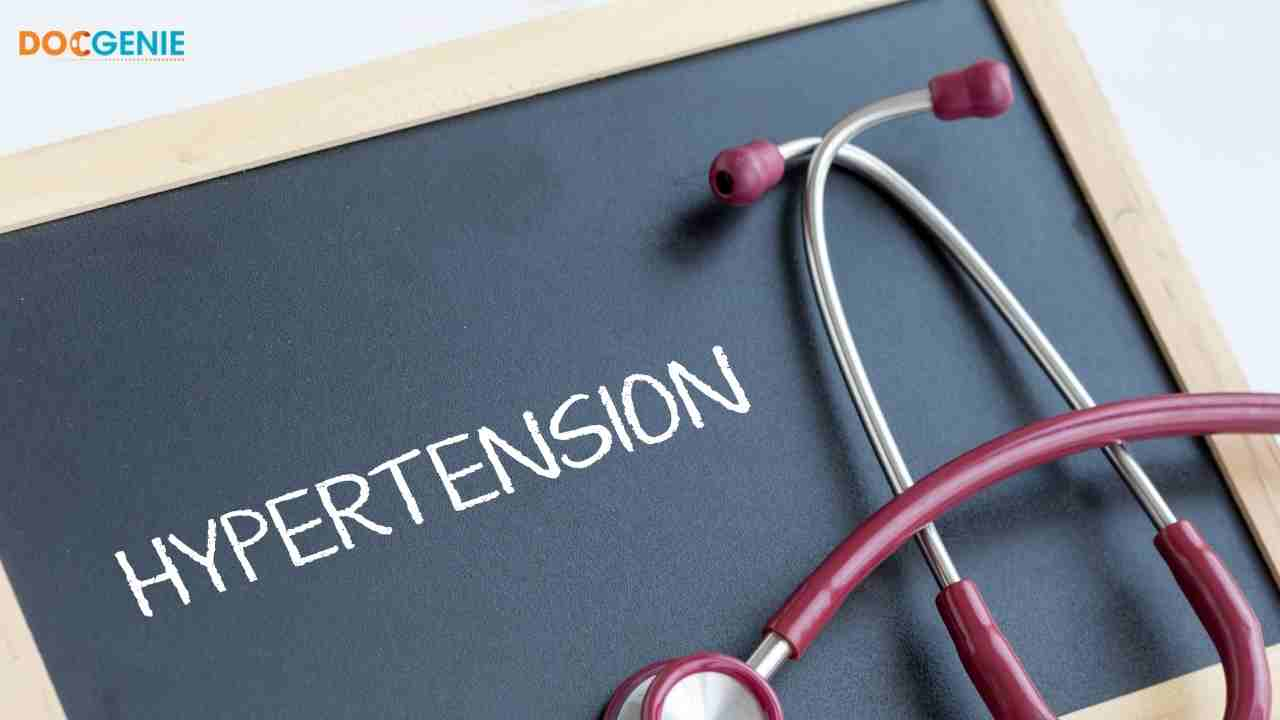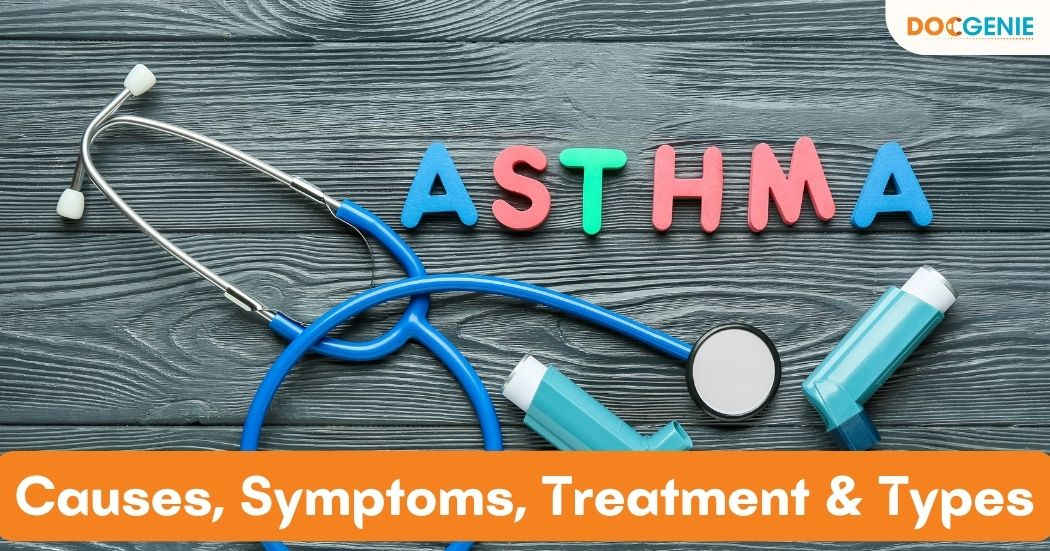Hypertension: Causes, Symptoms, and Treatments
5 min read
By DocGenie , Published on - 09 September 2022
Over the last twenty years or so, hypertension - also known as high blood pressure - has increasingly become a common ailment in our lives. Most households have one or multiple family members who have been diagnosed with this disease and have been prescribed medication for it. And in fact, hypertension is now such a common occurrence that it gets folded into daily living as a fact of life.
However, hypertension is a disease that must be managed properly, otherwise it can lead to much bigger health issues. But what causes hypertension? Can the disease be completely eradicated from our bodies or does it only have to be managed as best as possible? How do we recognise that we’re suffering from hypertension? Our blog post here is to help you delve into all of these aspects of a ubiquitous but controllable lifestyle condition.
Causes and Risk Factors of Hypertension
What causes hypertension in people? Are there certain factors that tend to exacerbate an individual’s blood pressure?
“It’s really hard to identify the root cause with this disease,” says Dr. Rachna Kucheria, Founder at DocGenie. “For most people, hypertension is a disease that develops slowly over the years, with ageing and lifestyle choices thrown into the mix. However, every once in a while, we do come across a patient who has underlying health conditions that lead up to the development of hypertension in their bodies.”
These underlying health conditions can include - but are usually not limited to - conditions like renal disease, thyroid or adrenal gland issues, congenital birth defects, or even prescription medications for other conditions being treated such as through birth control or fever reducers.
What we do know about hypertension is that the condition can get triggered by a number of risk factors, many of which people can control at their end. We have listed some of these risk factors below.
- Stress
As clichéd as this sounds, high levels of stress have a profound impact on our bodies, including our blood pressure levels. Which is why, as adults, we must learn how to manage our stress instead of reaching for unhealthy coping mechanisms such as alcohol, junk food, or smoking, which can further increase our blood pressure levels instead of controlling them. - Family History
If blood pressure issues run in your family and genes, you’re certainly going to be at a higher risk of developing these issues. Please do take care. - Ageing
As we age, our blood pressure levels tend to increase as well because of a host of contributing factors that come along with age. Men and women both tend to develop high blood pressure issues, particularly in their 60s. - Smoking
If cigarette packet warnings and life advice were enough to keep people from smoking, millions of us would kick the habit right away. This one habit contributes to so many heart health issues, with hypertension being one of them. - High Salt Diets
If you have a tendency to reach for packaged foods or junk food on a whim, please note that these items are usually heavy on salt because it acts as a preservative that extends the shelf-life of products. If consumed regularly, they can increase your risk of developing hypertension. - Overconsumption of Alcohol
If allowed to continue for a long period of time, heart damage can be a direct consequence of heavy drinking or even small volumes of daily drinking. Take care to avoid the urge for a frequent drink and if it’s difficult to control, please seek help for it. Your heart and blood pressure will thank you for the effort.
“With hypertension, keeping a close check on lifestyle indulgences and habits is extremely important because most people don’t exhibit physical symptoms of high blood pressure, even when their BP is at dangerously high levels”, says Dr Kucheria, “this is why we call it a silent killer”, she adds.
While some people may show signs of shortness of breath, headaches, a bleeding nose, or palpitations, many people with high-blood pressure issues will not be diagnosed until the condition reaches a severe stage. A regular or specific check at the doctor’s usually reveals hypertension as an underlying problem before this happens.
Managing and Treating Hypertension
As a lifestyle disease, hypertension needs to be managed closely and on a daily basis. While medications can help, nothing proves to be more valuable than taking corrective actions through lifestyle changes. If you’re fortunate, you may still have time to take preventive actions to manage your blood pressure issues.
Exercise, exercise, exercise. Most health guidelines suggest that adults partake in 150-minutes of moderate-intensity exercise a week. This could include brisk walking, cycling, swimming, or yoga. In an ideal world, all of us would be extremely active and look after our bodies, but until then, 30 minutes a day, five times a week is a great start. A word of caution, do get a clearance from your doctor if you have high blood pressure, before you start an exercise routine.
If just lifestyle changes don’t help, doctors will also place people on medications like diuretics, beta blockers and others to help them manage their blood pressure levels. The medicine is usually prescribed keeping in mind a patient’s other existing conditions and prescriptions.
Lifestyle diseases such as hypertension, diabetes, and obesity require dedicated efforts to control food, exercise, and stress-management habits, but they certainly pay off in the long run.
To get help with your hypertension issues, visit www.docgenie.in today.
Author Details

Dr.Rachna Kucheria
MD (Community Medicine) AIIMS New Delhi
MD (Family Medicine) USC California
Obesity Medicine Certification The American Board of Obesity Medicine
30+ Years of experience


